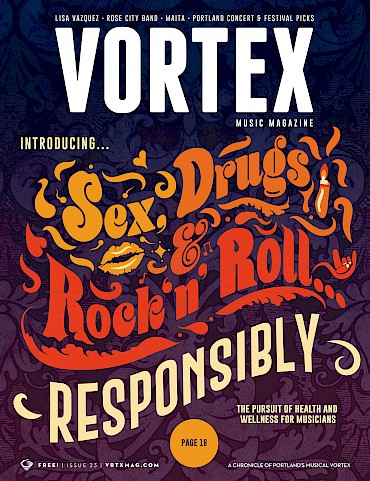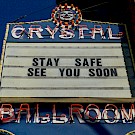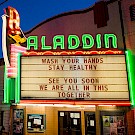There are a lot of assumptions in the music industry—and rightfully so.
There’s no how-to manual you can check out from the library, no one tried-and-true path, no formula for making it. Every artist’s trajectory is different.
Good news: In our information age, there are innumerable resources available—books, podcasts, newsletters, videos, organizations—to guide you along your path. Huge communities of all sorts gather all over the internet to exchange advice.
But sometimes it can be overwhelming.
Which is why many artists think the key to their success lies in someone else. They think they need a record label, publicist, manager or booking agent to take the next step forward, to level up. What these people have is knowledge and experience—which are important—but remember, they don’t have all the answers because there’s no recipe for success.
Lots of artists ask us what we can do to help promote them or what advice we have to offer. While we are passionately invested in the vitality of this music community, we are limited by our time and resources—which means we can’t possibly cover every deserving artist in our own music scene. (But please, do let us know about your project. And yes, you can also advertise.)
 CLICK HERE to join the Vortex Access Party—you'll get a copy of the mag delivered to your door each quarter! Cover artwork by Jeff HayesThis is why it all starts with you—your ambition, ingenuity, confidence and determination. So much of what you think you need will naturally fall into place when you put yourself out there and make connections, online and off. If you’re grinding, you’re also building community—both a fan base and a network of like-minded creators.
CLICK HERE to join the Vortex Access Party—you'll get a copy of the mag delivered to your door each quarter! Cover artwork by Jeff HayesThis is why it all starts with you—your ambition, ingenuity, confidence and determination. So much of what you think you need will naturally fall into place when you put yourself out there and make connections, online and off. If you’re grinding, you’re also building community—both a fan base and a network of like-minded creators.
Your community is key: Ask them for help but be willing to help as well. Find the balance between creating and contributing, being bold and humble. As Nicholas Salas-Harris, artistic director of PDX Jazz, explained in this magazine a year ago: “Scenes give birth to big groups that go on to do bigger things. Those scenes can only happen if people are engaged and supportive.”
It’s incredibly vulnerable to put yourself out there, but your trusted community can be a great sounding board, providing affirmation and (hopefully) constructive criticism. Unified communities are incredibly powerful, capable of tackling issues that go beyond studios and stages.
As you’ll read in this issue, many musicians have asked for help in times of crisis and their communities have responded. MusicPortland asked healthcare professionals who would raise their hand in support of musicians and there was an outpouring of responses. Sometimes you just have to ask!
“Things may come to those who wait, but only the things left by those who hustle.” Commonly (but incorrectly) attributed to Abraham Lincoln, this sentiment nevertheless sums it up. Don’t be afraid to be a hustler: Put out the call, find your people and make things happen!
Chris Young Editor-In-Chief









